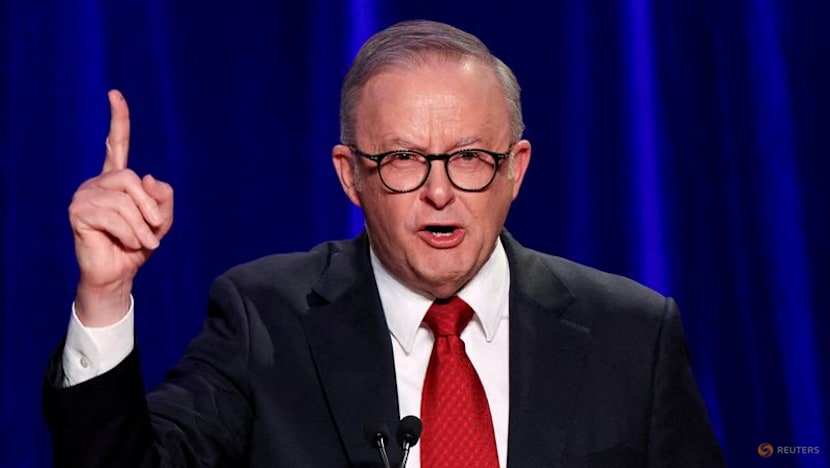Balancing act for Australian PM Albanese as he meets Trump, with China watching closely
Analysts say Australia faces the challenge of keeping Washington onside while maintaining strong economic ties with Beijing.


This audio is generated by an AI tool.
CANBERRA: Australian Prime Minister Anthony Albanese will travel to Washington for his first formal face-to-face meeting with United States President Donald Trump on Monday (Oct 20).
The two leaders are expected to discuss defence spending and the US$240 billion deal for nuclear-powered submarines under AUKUS, which has drawn strong opposition from China.
The AUKUS trilateral pact between Australia, Britain and the US facilitates cooperation on security issues in the Indo-Pacific.
With China’s rapidly expanding navy asserting its presence across the Pacific, the defence of Australia – and the strength of its alliances – has taken on new urgency.
A DELICATE BALANCING ACT
Analysts say the Washington meeting will be a key test of the AUKUS partnership and of Australia’s ability to balance its dual relationships with the US and China.
Marcus Hellyer, head of research at defence and security think tank Strategic Analysis Australia, said Albanese’s immediate goal will be to secure a clear signal of support from Washington on the first pillar of AUKUS – the nuclear-powered submarine programme.
“If he can walk away with a firm commitment from Trump, I think he can say ‘mission accomplished’,” he added.
“But that's the immediate task. The broader task, I think, is (that while) he has stabilised relations with China, he now needs to stabilise relations with the US.”
Observers note that it is a delicate balancing act – keeping Washington onside while maintaining strong economic ties with Beijing.
“China has, I think, strategic and operational objections to AUKUS, and AUKUS is right now Australia's biggest defence procurement project,” said Frank Yuan, postdoctoral fellow at public policy think tank Australia Institute.
“On the other hand, Albanese would want to keep China onside as an economic partner.”
China will be keeping an even closer eye on the Australian prime minister's talks with Trump.
“China sees AUKUS as an expression of Australia's growing alignment with America strategically and that of course for China is worrying, in that it sees this potential containment formation being designed in Washington but being rolled out across Asia,” Yuan noted.
LONG-STANDING MILITARY ALLIANCE
Veteran journalist Michelle Grattan, one of Australia's most respected political commentators, said the meeting could set the tone for how the two leaders manage that balance in the years ahead.
“Anthony Albanese and President (Trump) have had several phone calls,” she added. “We've been told that they've been constructive – but nothing surpasses that face-to-face relationship.”
Experts said the outcome of the upcoming meeting will be highly consequential – either strengthening the long-standing military partnership between Australia and the US or prompting fresh debate about Washington’s approach to the Indo-Pacific.
“Australian governments and prime ministers have always had this mantra that we can enjoy the economic relationship with China as our major trading partner and the security benefits of the alliance with the US,” said Strategic Analysis Australia’s Hellyer.
“They've always said that somehow we can have our cake and eat it – we can have both of these things. The Chinese strategy has been essentially to separate the US from its alliance partners.”
A potential sticking point could be Australia’s financial commitment to defence, and whether Canberra is prepared to meet Washington’s call to raise spending to 3.5 per cent of its gross domestic product (GDP).
“The prime minister will want assurances about AUKUS, that's very central to Australia,” said Grattan.
“The president, I think, will want to be reassured that Australia is willing to pay what is needed for defence.”


















